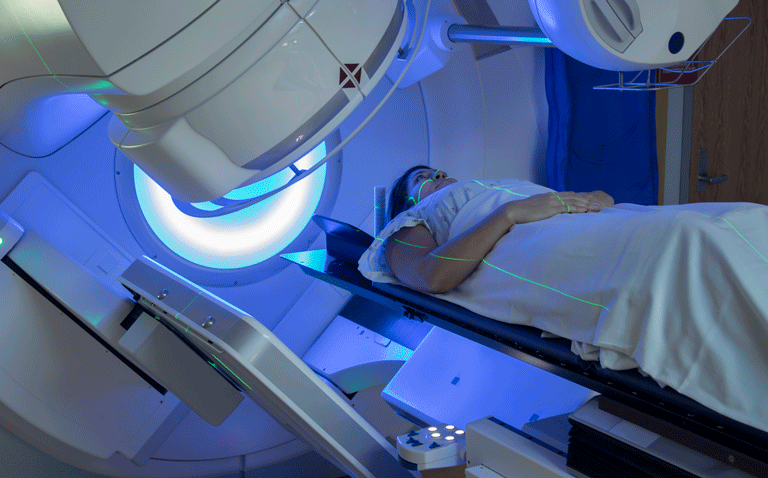The longer-term use of radiotherapy has been shown to reduce local breast cancer tumour recurrence but does not affect overall survival
Use of radiotherapy for 30 years in patients following breast conserving surgery in conjunction with chemotherapy or tamoxifen, reduces the risk of ipsilateral breast tumour recurrence but does not affect overall survival, according to the findings of follow-up study presented at the European Breast Cancer Conference in November 2022.
For a lot of women with early-stage breast cancer, breast-conserving surgery removes macroscopic disease although the presence of any remaining microscopic tumour tissue, if left untreated, could lead to loco-regional recurrence or life-threatening distant metastases. As a result, adjuvant radiotherapy, is often used and the evidence from over 10,000 women, suggests that radiotherapy to the conserved breast halves the rate at which the disease recurs and reduces the breast cancer death rate by about a sixth. In 1976, researchers began a randomised trial to determine whether lumpectomy with or without radiation therapy was as effective as total mastectomy for the treatment of invasive breast cancer. Results after 6 years showed that the relapse rate in the ipsilateral breast was 24.5% in the non-irradiated group compared to 5.8% following breast irradiation. But the researchers continued to monitor patients and the results showed that after 20 years of follow-up, there were no significant differences in overall survival among women who underwent mastectomy and those who underwent lumpectomy with or without postoperative breast irradiation. However, the study did show that the cumulative incidence of recurrent tumour in the ipsilateral breast was 14.3% in the women who underwent breast irradiation, compared with 39.2% in the women without irradiation. In the present Now, researchers are able to present 30-year survival data.
Radiotherapy and overall survival following breast cancer surgery
A total of 585 patients aged ≤70 years with early breast cancer, underwent local excision with a 1 cm margin, axillary node sampling or axillary node clearance.
Overall, researchers observed that ipsilateral breast tumour recurrence was found to be significantly lower in the radiotherapy group (Hazard ratio, HR = 0.39, 95% CI 0.27 – 0.55). For example, local recurrence (LR) after 10 years was 8.8% vs 31% (radiotherapy vs non-irradiated) but this difference reduced after 30 years and was 27.8% (95% CI 19 – 36.5) in the irradiated group and 42.7% (95% CI 35.8 – 49.6) in the non-irradiated group.
Furthermore, there was no difference in overall survival after 30 years (HR = 1.08, 95% CI 0.89 – 1.30, p = 0.43) and the proportion of survivors was broadly similar over time. For instance, overall survival at 10 years was 72.5% vs 70.8% (irradiated vs non-irradiated) and this difference was broadly similar after 30 years (23.7% vs 27.5%).
In a press release from the conference, lead researcher, Professor Ian Kunkler said, ‘We found that there is no long-term improvement in overall survival for those women having radiotherapy‘. He added that ‘The benefits of having radiotherapy in terms of fewer local recurrences are only accrued over the first ten years after radiotherapy; thereafter, the rate of local recurrence is similar whether or not patients had radiotherapy.’
Citation
Williams L et al. Randomised controlled trial of breast conserving therapy: 30 year analysis of the Scottish breast conservation trial. Abstract No 2. 13th European Breast Cancer Conference.










